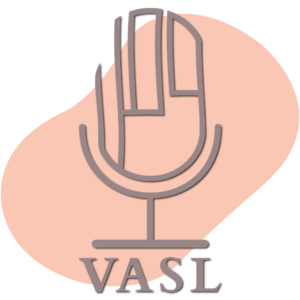Hi there! Today, I want to talk about the concept of achievements in society and how it’s linked to the rise of narcissism but first..
Weekly Inventory Check
We’re in the third week of September, and autumn is approaching in the Netherlands. Are you making progress on the goals you set for this month, or are you still working on them? Remember, we still have almost half of the month ahead, so it’s important to stay patient and be satisfied with what you’ve accomplished so far while still hustling for outstanding goals.
Achievements in Society
I recently listened to a podcast called “Philosophize this!” which I highly recommend. One of its episodes discussed the growing emphasis on achievement and productivity in our society. In the past, people were often assigned a specific role, like being a farmer or blacksmith, and they were compelled to stick with it. This was a form of societal control. However, today, we have more freedom to choose our paths, which might sound positive, but it has its downsides.
In today’s society, we’re not forced into one role, but we’re burdened by the pressure to choose the right path for ourselves. This pressure can lead to feelings of depression. You might wonder, how can freedom lead to depression? Well, it’s because we’re bombarded with the message that we can achieve anything we want. We’re told that we can be as successful as we desire, that we can reach for the stars. If we don’t constantly strive for these high achievements, we’re made to feel like failures. Instead of society directly forcing us to be productive, we now impose this pressure on ourselves. We become our own taskmasters, constantly pushing ourselves to be productive in various aspects of life, like work, personal branding, or social media presence. This constant striving can create a feeling of being on a never-stopping treadmill.
This is where narcissism enters into the picture. In this achievement-focused society, we’re encouraged to believe that we’re better than others, as a way to cope with the immense pressure. Society asks so much of us that we start believing we must be exceptional in some way to survive this pressure. This leads to narcissistic tendencies. We also tend to surround ourselves with like-minded individuals who share our ambitions. Think of LinkedIn or Instagram influencers, for example. We form echo chambers where we support and promote each other in the pursuit of ambition. I’ve personally experienced this as I’ve tried to build my own brand through platforms like youtube and Meta. I find myself connecting with and emulating others who are doing similar things. We’re all essentially cheering each other on in our quest for recognition and success.
All of this makes me wonder why we allow society to shape us this way. Where is the contentment in constantly chasing more? In the past, society was simpler. People had just one role assigned by society, and they were content with it. They were part of a community, and they had faith to guide them. This sense of belonging was small, but it worked for us.
Nowadays, things are different. People have so many roles and responsibilities, and they constantly strive for self-improvement. This focus on individuality means we often lose the sense of community, well-being, and spirituality that used to ground us in the past. We need to find a balance between our personal goals and our connection to others and our inner selves. Today, these aspects are diminishing as we become consumed by the pursuit of achievement. It’s a sobering reflection on the effects of our achievement-driven society.
Want More?
. This article examines the mediation effect of perceived social support and self-esteem in the relationship between social comparison orientation and psychological well-being.
· This article talks about how in today’s world, from the time you are born until you pass away, it can feel like you’re not really as free as you might think. Parents and society often remind you that there are rules and expectations, which can make you feel like your freedom is just a trick.
· This article looks at both the good and bad sides of people with narcissistic tendencies and explores why they behave this way.
Read of the Week
This concept has been proposed by Byung-Chul Han, a South Korean philosopher. He’s an expert in cultural studies. As one of the leading figures in contemporary philosophy, he exposes and criticizes how, in today’s world, we’re slaves to our own egos and victims of self-exploitation. In his book, The Burnout Society, he addresses the cultural factors that give rise to this evil so typical of our era.
Thoughts to leave you with
Why are we doing what we’re doing? Have you ever thought about why you’re caught up in the rat race? I’m questioning it myself, and I invite you to join me in this exploration. It’s intriguing how we often believe we’re improving as species by pursuing our passions, like I am doing. By creating content, giving training, or working with data. But do we genuinely love all of these things, or are they just a means to an uncertain end? These questions both fascinate and perplex me, and I don’t have all the answers because it’s not a straightforward matter. Let’s navigate this journey together.
The Weekly Vasl Podcast
Our Episode on Expat Life is out now! You can watch it below! Ahad and Sezzen are uncovering a deeply nuanced and often overlooked aspect of expat life, one that revolves around the daily struggles tied to culture, language, climate and what not. These challenges are an inherent part of life in a foreign land, and while they may pave the way for a more comfortable existence in some regards, they also exact a toll on one’s mental and emotional well-being. Living far from the familiar comforts of home, and sometimes even fun, can be a draining experience. Become part of this difficult conversation and let us know if you resonate well with us on this.
We also are on Spotify, Apple, Google, and wherever you listen!


